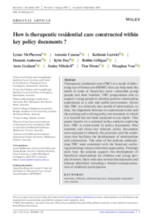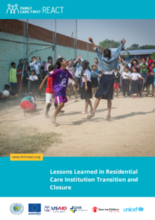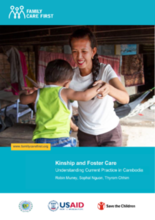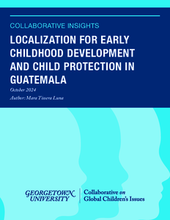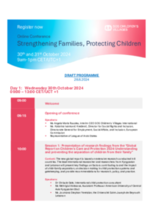Displaying 41 - 50 of 14574
This episode of the Helping Children Worldwide podcast provides a deep dive into the complexities and triumphs of reintegrating children into family environments in Sierra Leone and beyond.
Key officials say entire population of northern Gaza ‘at imminent risk of dying from disease, famine and violence’
The main objective of this assessment and report is to gain knowledge about children with disabilities without family support, or at risk of being so, and the alternative care arrangements available for these children in the Philippines. In addition, whether there is scope for improvement of alternative care measures in the Philippines in line with international standards.
This paper reports on a national policy analysis in Australia exploring how therapeutic residential care (TRC) is constructed in policy documents. One hundred and thirty-two relevant policy documents were analysed to identify the practices and the conditions that facilitate the development of relationships and connections.
This article seeks to learn more about the experiences and perspectives of those who spent their childhoods in institutional care in Thailand and how they compare with international research on this topic.
This document produced by CERI presents the outcomes of an informative assessment and stakeholder interviews focused on the rights of children with disabilities (CWD) within Sri Lanka’s child protection system. The primary objective is to provide evidence-based recommendations to align the child protection system with the United Nations Convention on the Rights of Persons with Disabilities (CRPD).
The objective of this study is to document lessons learned from Family Care First (FCF) | Responsive and Effective Child Welfare System Transformation (REACT) members in Cambodia, as well as the literature from others working on transition globally, to create evidence-based recommendations to inform future transitions and closure of residential care institutions in Cambodia at scale.
This study was conducted by Family Care First (FCF), to enhance the understanding of common practices of kinship and foster care in Cambodia and identify gaps and good practices that are scalable to promote quality options for family based alternative care programs. FCF is a network of global organizations working together to support children to live in safe, nurturing family-based care.
This Collaborative Insights report gathers perspectives on strengthening ECD efforts from Guatemalan grassroots practitioners, national social movements, community-based organizations, international non-governmental organizations, donors, and the Guatemalan government.



